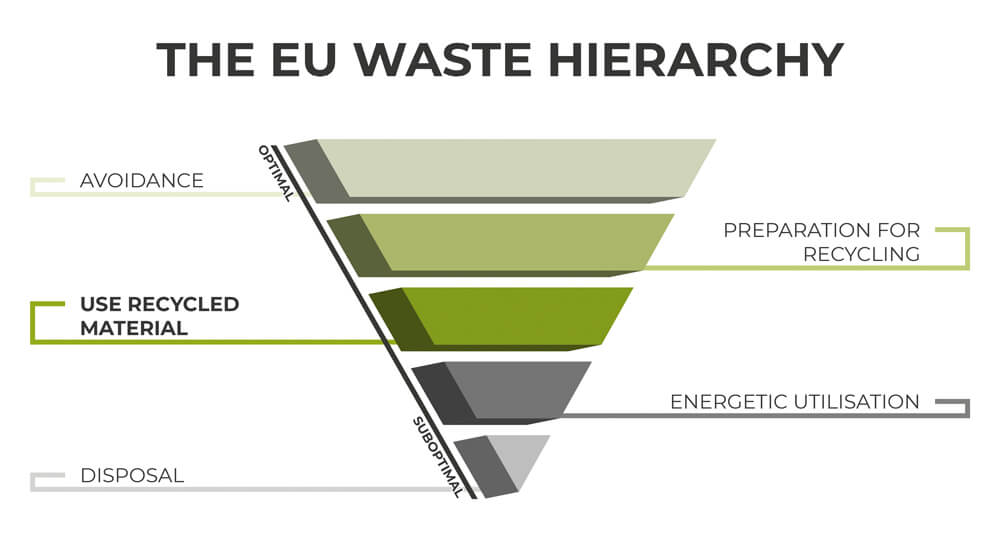Sustainability - Act with caution
Sustainability is attentive and careful interaction with oneself and the environment, sustainable consumption – these are important values of our time.
Sustainability is attentive and careful interaction with oneself and the environment, sustainable consumption – these are important values of our time.

In order to stop climate change, it is essential for everyone, whether at work or at home, to act carefully and – where necessary – ideally to consume sustainably. As early as 2008, the EU defined in its waste hierarchy how waste should ideally be avoided or how it should be treated:

Avoidance means doing without products and thus avoiding subsequent waste. For tyres, for example, this would mean driving less in the car.
Preparation for recycling means the further use of the existing product, in the case of tyres this means retreading and continued use as tyres. Since tyres are a highly complex high-tech product, this is only possible a few times, so that the third and fourth options are, in practice, the ecologically and economically sensible ways to avoid waste disposal:
Use of recycled material Under the Use of recycled material it is understood that the products are recycled, i.e. broken down into their individual components, and this material is then used for new products – often also products with a long service life. In the case of car tyres, this is achieved with 90% of the ingredients: 75% of the old tyre is broken down into rubber granulate and powder thanks to sophisticated machine and plant technology, 15% into steel. Both high-quality secondary raw materials are reused in new products. Only 10 % of a used tire – the textile portion – is used for energy recovery:
The energetic recovery means incineration with energy benefits. The textile components of tyres can be used in industrial processes as a substitute for fossil fuels such as coal.
Disposal is the last of all the options to be chosen and means the classic waste incineration or landfill. With a mountain of scrap tyres of almost 600,0000 tonnes per year, this is not only bad for the environment, but also not an option for economic and logistical reasons.
Sustainability focuses on meeting the needs of the people in the present time without compromising or badly affecting the ability of future generations to meet their needs. The concept of sustainability is composed of three pillars: economic, environmental, and social—also known informally as profits, planet, and people.
Increasingly, companies are making public commitments to sustainability through actions like reducing waste, investing in renewable energy, and supporting organisations that work toward a more sustainable future.